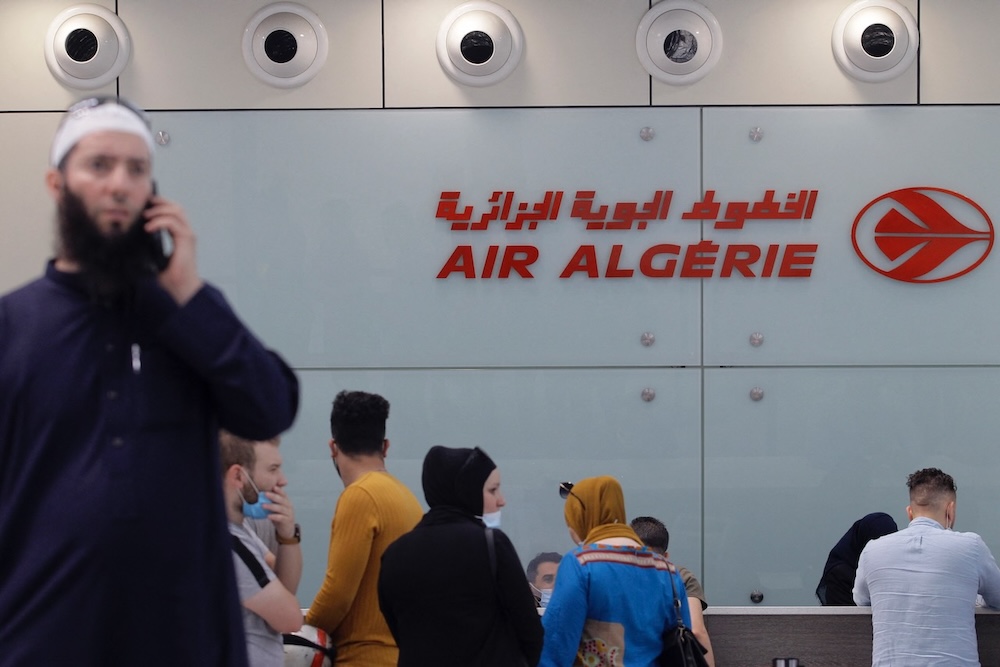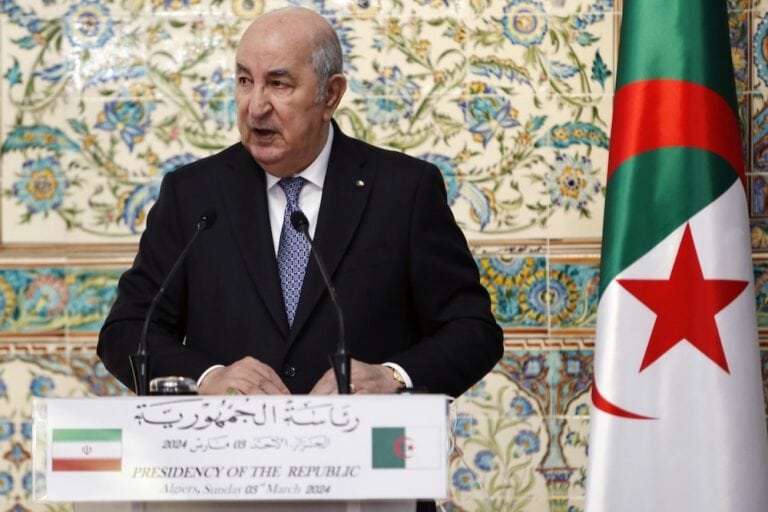"These travel bans are part of a broader campaign of continued harassment of critics of the government, aimed at silencing dissent and eradicating civic space." — HRW
This statement was originally published on hrw.org on 3 February 2025.
Authorities targeting activists, journalists, academics
Algerian authorities have increasingly used arbitrary travel bans to retaliate against perceived critics, Human Rights Watch and MENA Rights Group said today. The authorities should lift the arbitrary bans and stop using them as a tool to repress dissent.
Algerian authorities have used travel bans to arbitrarily target civil society activists, opposition party leaders, journalists, union supporters, and others deemed critical of the government. The arbitrary bans can be imposed without formal notice, are often unlimited in duration, and are almost impossible to challenge. They prevent people from leaving the country, violate their right to freedom of movement, and undermine the rights to freedom of association, assembly, and expression. In some cases, they have led to families being separated or affected the work and mental health of those targeted.
“These travel bans are part of a broader campaign of continued harassment of critics of the government, aimed at silencing dissent and eradicating civic space,” said Bassam Khawaja, deputy Middle East and North Africa director at Human Rights Watch. “Even those who have been unjustly convicted of charges and served their terms, or who have been acquitted, continue to face punitive measures that rob them of their right to freedom of movement.”
Human Rights Watch and MENA Rights Group documented 23 cases of Algerian nationals subject to travel bans, a pattern that has intensified since 2022.
In most of these cases, the bans were either imposed arbitrarily by security forces without due process, lawyers said, or were ordered by a public prosecutor. Nevertheless, even when imposed by order of a public prosecutor, they often breach Algerian legal requirements and are inconsistent with international standards on freedom of movement.
Article 49 of the Algerian Constitution guarantees freedom of movement and “the right to enter and leave the national territory” to every citizen. Any restriction on this right “may only be ordered for a specific period by a reasoned decision of the judicial authority.” Article 36 bis 1 of Ordinance no. 15-02 of 2015 of the code of criminal procedure states that “the public prosecutor may, for the purposes of an investigation, on the basis of a reasoned report by a judicial police officer, order a ban on leaving the country on any person against whom there is evidence of probable involvement in a felony or an offense.”
Under the law, travel bans are limited to three months and renewable only once, except in the case of terrorism or corruption offenses in which they may be renewed until the investigation is completed. The public prosecutor is also responsible for lifting travel bans. Yet, Human Rights Watch and MENA Rights Group found that in many cases the authorities imposed arbitrary travel bans without complying with the legal time limit.
In many cases, the authorities also did not provide formal notice or a legal basis for the travel restrictions, making them difficult or impossible to challenge in court. Some people only found out about a travel ban when they tried to travel abroad. Of the 23 cases documented, not a single person was informed of the legal basis for their ban. Even when formal notice was given, the legal duration limit was rarely respected, with some people prevented from traveling for years without justification. Others were prevented from traveling even when told they were not subject to a travel ban or received a court judgment overturning a ban.
Human Rights Watch interviewed five critics of the government who have been under formal travel bans for over two years. All five received a summons by police in the Béjaïa governorate between late 2022 and early 2023 and were notified of a travel ban ordered by the Béjaïa public prosecutor. Police confiscated passports in four of these cases. In the fifth case, the person had been unable to renew their passport due to their peaceful activism. After three months, four of the activists were summoned again and notified that their travel ban had been extended, but none of them had since received notice that their ban had been renewed or lifted at time of writing.
Algerian authorities should cease using arbitrary travel bans to retaliate against perceived critics and activists and lift all current bans imposed on those exercising their fundamental rights to freedom of expression, association, or peaceful assembly. They should stop imposing travel bans extralegally and outside a formal process, duly notify people banned from travelling, ensure that any bans do not extend beyond the period permitted by law, require decisionmakers to show sufficient justification and legal basis for imposing and renewing a travel ban, and provide an avenue for appeal. Travel bans should only be issued by judicial order and should not be left to the discretion of prosecutors and security forces. Legislative authorities should amend article 36 bis 1 of Ordinance 15-02 to align with international standards on freedom of movement.
Human Rights Watch and MENA Rights Group wrote to the Ministry of Justice on December 19, 2024, to request information on the use of travel bans but had not received a response at the time of writing.
Under the International Covenant on Civil and Political Rights and the African Charter on Human and Peoples’ Rights, both of which Algeria has ratified, everyone has the right to freedom of movement, including the right to leave any country, including their own. The United Nations Human Rights Committee, which authoritatively interprets the Covenant, has found that countries may restrict the right to freedom of movement only to protect national security, public order, public health or morals, and the rights and freedoms of others, and that restrictions must be “provided by law, must be necessary in a democratic society for the protection of these purposes and must be consistent with all other rights recognized in the Covenant.” The Committee also required authorities to provide the “reasons for the application of restrictive measures” in all cases involving restrictions on freedom of movement.
“The extensive and arbitrary use of travel bans against critics in Algeria is alarming, with the cases we have documented representing only the tip of the iceberg,” said Alexis Thiry, legal adviser at the MENA Rights Group. “This practice violates Algeria’s international obligations and has devastating effects on individuals’ rights.”
Please refer to HRW’s statement for further information on these topics:
Arbitrary Travel Bans Without Formal Notice
Formal Travel Bans Inconsistent with International Standards
Travel Bans Not Lifted After Judicial Supervision Ended



